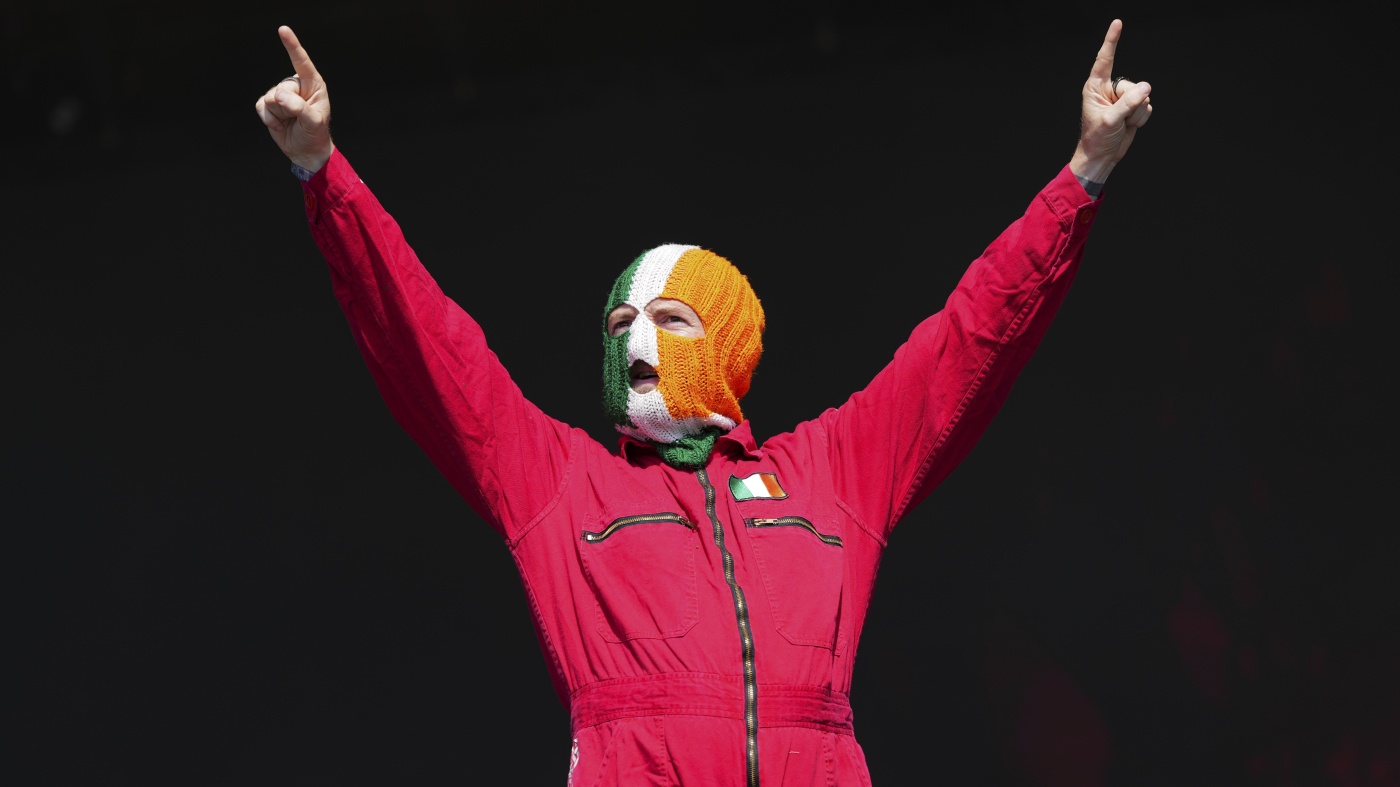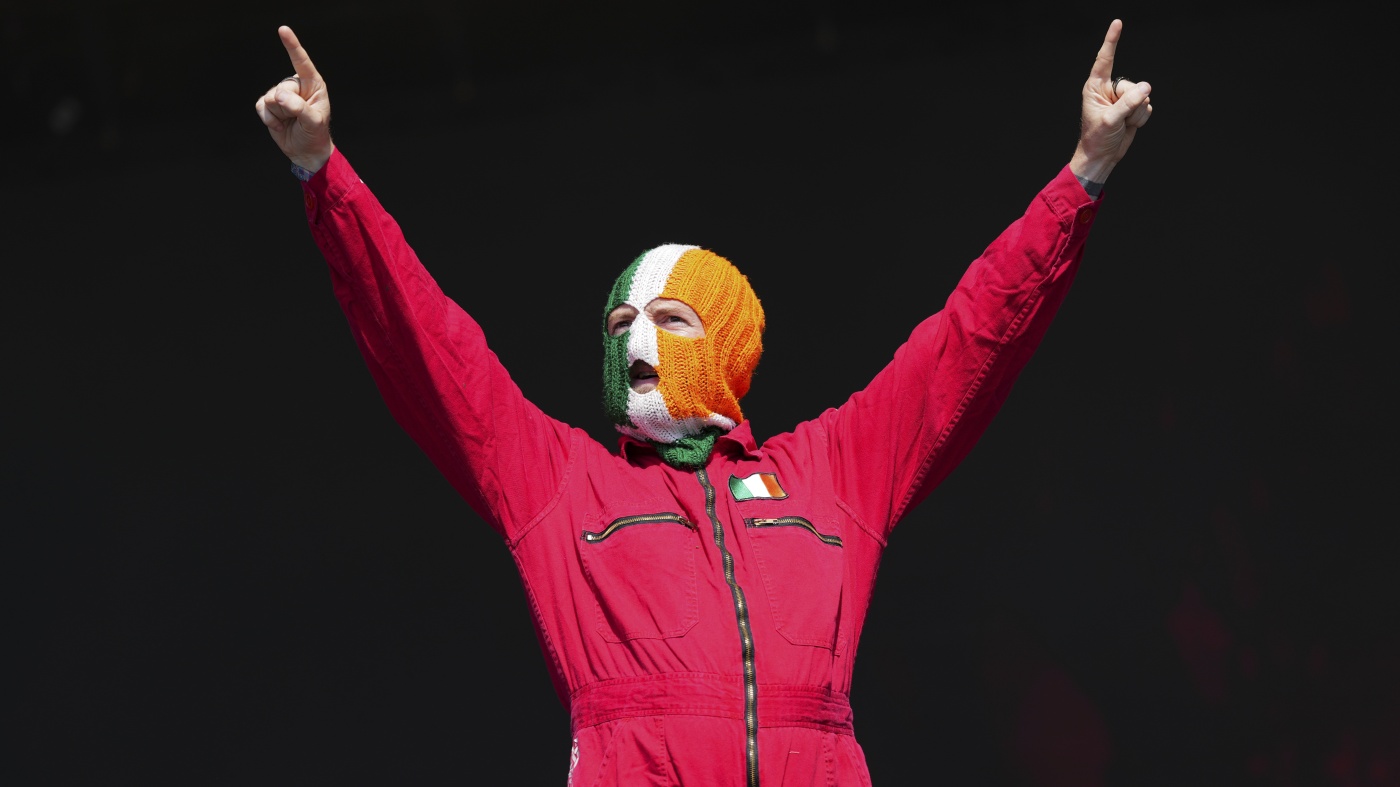Kneecap’s performance at the Glastonbury Festival has become a focal point for discussions about music, politics, and cultural identity. The Northern Irish rap group, known for their Irish-language lyrics and politically charged themes, brought a unique energy to the festival, sparking both admiration and controversy. Their appearance at one of the world’s most prestigious music events marked a significant moment for Irish-language music and the broader expression of Northern Irish cultural identity.
Kneecap’s Unique Position in Irish-Language Music
Kneecap has carved out a distinct niche in the music industry by blending hip-hop with Irish-language lyrics, a combination that is both innovative and culturally significant. The trio, originating from West Belfast and Derry, has managed to infuse their music with a rebellious spirit, satirical wit, and a deep connection to their heritage. Their decision to rap primarily in Irish is not just a musical choice but a political and cultural statement, asserting the relevance of the language in contemporary society.
The group’s music often addresses themes of youth defiance, local pride, and political commentary, resonating strongly with younger generations in Northern Ireland. Their lyrics, filled with clever symbolism and coded references, reflect the ongoing complexities and tensions in the region. By using Irish as their primary language, Kneecap contributes to the preservation and revitalization of the language, which has historically been marginalized in favor of English.
The Political Backdrop and Controversy
Kneecap’s association with Irish republican symbolism has drawn significant attention and criticism. The group’s lyrics and imagery often reference the Irish republican movement, which has been historically linked to the struggle for a united Ireland. This connection has led to polarized opinions, particularly from British politicians who view their music as potentially glorifying militancy.
The controversy surrounding Kneecap’s performance at Glastonbury was intensified by recent allegations involving one of the group’s members. Prime Minister Keir Starmer and other British politicians criticized the festival organizers for including Kneecap, citing concerns about the political messages in their lyrics. However, the decision to proceed with their performance reflects a broader trend towards inclusivity in the arts, where diverse and even contentious voices are given a platform.
The debate over Kneecap’s inclusion highlights the ongoing tensions surrounding expressions of Irish republicanism in mainstream events. Despite the criticism, their performance at Glastonbury drew tens of thousands of attendees, demonstrating the group’s growing popularity and the audience’s appetite for music that challenges the status quo.
Resonance with Audiences and Cultural Significance
Kneecap’s performance at Glastonbury was met with enthusiasm and appreciation, underscoring their resonance with audiences. The group’s ability to blend traditional Irish narratives with modern hip-hop beats creates a unique space where historical memory and current realities intersect. Their music serves as a vehicle for cultural revival, particularly in championing the Irish language’s contemporary relevance.
The choice of Glastonbury as a platform amplifies Kneecap’s message far beyond Northern Ireland. The festival’s global audience provides an opportunity for listeners worldwide to engage with issues of identity, language, and unresolved political conflicts from a new perspective. This exposure is crucial for Irish-language hip-hop, which has historically been underrepresented in mainstream music.
Media and Broadcast Reception
The potential streaming of Kneecap’s Glastonbury set by the BBC signals further recognition of the group’s impact and the public interest surrounding their performance. Media coverage has been intense and often polarized, reflecting the wider debates about free speech, artistic expression, and political sensitivity in the arts.
The coverage has highlighted the role of hip-hop as a powerful medium for marginalized voices and its capacity to challenge dominant narratives. Kneecap’s presence at Glastonbury represents a milestone for Irish-language hip-hop, demonstrating its potential to reach a global audience and inspire new conversations about identity and culture.
Conclusion: A Defiant and Symbolic Moment in Music and Culture
Kneecap’s Glastonbury performance stands as a defining episode, not merely for their career but for the cultural and political dialogue it embodies. The blend of artistic innovation, linguistic pride, and controversial symbolism encapsulates the complex realities of Northern Ireland’s past and present.
Their ability to command a prominent stage despite criticism underscores the transformative power of music to confront difficult histories and inspire new conversations. Whether one views them as provocateurs or cultural ambassadors, Kneecap undeniably symbolizes a dynamic and evolving cultural identity—one that embraces both heritage and modern rebellion.
As Kneecap continues to challenge boundaries and engage with socio-political themes through Irish-language rap, their work will likely remain a potent touchstone for discussions about identity, conflict, and expression in Northern Ireland and beyond. Their Glastonbury set was more than just a concert; it was a statement of presence, resistance, and hope for a new generation seeking to define itself on their own terms.








